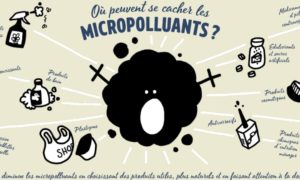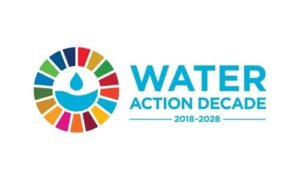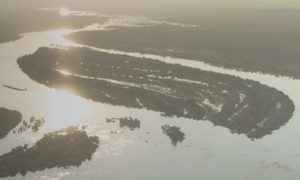Nouvelle
World Water Day 2022
World Water Day, held on 22 March every year since 1993, focuses on the importance of freshwater. A core focus of World Water Day is to support the achievement of Sustainable Development Goal 6: water and sanitation for all by 2030. This year the theme is Groundwater – making the invisible visible.
About
World Water Day is celebrated each year on 22 March. It aims to raise awareness of the 2.2 billion people living without access to safe water. It is about taking action to tackle the global water crisis. A core focus of World Water Day is to support the achievement of Sustainable Development Goal 6: water and sanitation for all by 2030.
Today, water is under extreme threat from a growing population, increasing demands of agriculture and industry, and the worsening impacts of climate change. As societies balance the demands on water resources, many people’s interests are not being taken into account.
2022 Theme
“Groundwater – making the invisible visible” is the theme for World Water Day 2022. Groundwater is water found underground in aquifers, which are geological formations of rocks, sands and gravels that can hold water.
Groundwater is invisible, but its impact is visible everywhere. Out of sight, under our feet, groundwater is a hidden treasure that enriches our lives. In the driest parts of the world, it may be the only water people have. Almost all of the liquid freshwater in the world is groundwater, supporting drinking water supplies, sanitation systems, farming, industry and ecosystems. In many places, human activities over-use and pollute groundwater. In other places, we simply do not know how much water is down there. Groundwater will play a critical role in adapting to climate change. We need to work together to sustainably manage this precious resource.

What is groundwater?
Groundwater is water found underground in aquifers, which are geological formations of rocks, sands and gravels that hold substantial quantities of water. It feeds springs, rivers, lakes and wetlands, and seeps into oceans. Groundwater is recharged mainly from rain and snowfall infiltrating the ground, and it can be extracted to the surface by pumps and wells.
Importance of Water
Water is complex because it is linked to almost everything in the world. But complexity should not hinder understanding: Water is a precondition for human existence and for the sustainability of the planet.
Water is at the core of sustainable development and is critical for socio-economic development, healthy ecosystems and for human survival itself. It is vital for reducing the global burden of disease and improving the health, welfare and productivity of populations.
Water is also at the heart of adaptation to climate change, serving as the crucial link between the climate system, human society and the environment. Without proper water governance, there is likely to be increased competition for water between sectors and an escalation of water crises of various kinds, triggering emergencies in a range of water-dependent sectors.
The physical world of water is closely bound up with the socio-political world, with water often a key factor in managing risks such as famine, epidemics, inequalities and political instability.
According to the UN, today, one in three people live without safe drinking water. By 2050, up to 5.7 billion people could be living in areas where water is scarce for at least one month a year. Climate-resilient water supply and sanitation could save the lives of more than 360,000 infants every year and if we limit global warming to 1.5°C above pre-industrial levels, we could cut climate-induced water stress by up to 50%.
Extreme weather has caused more than 90% of major disasters over the last decade and by 2040, global energy demand is projected to increase by over 25% and water demand is expected to increase by more than 50%.
Importance of groundwater
Almost all the liquid freshwater in the world is groundwater. Life would not be possible without groundwater. Most arid areas of the world depend entirely on groundwater. It supplies a large proportion of the water we use for drinking, sanitation, food production and industrial processes. It is also critically important to the healthy functioning of ecosystems, such as wetlands and rivers. Its overexploitation can lead to land instability and subsidence, and, in coastal regions, to seawater intrusion under the land.
- Groundwater is being over-used in many areas, where more water is abstracted from aquifers than is recharged by rain and snow. Continuous over-use leads eventually to depletion of the resource.
- Groundwater is polluted in many areas and remediation is often a long and difficult process. This increases the costs of processing groundwater, and sometimes even prevents its use.
- In other places, we do not know how much groundwater lies beneath our feet, which means we could be failing to harness a potentially vital water resource.
- Exploring, protecting and sustainably using groundwater will be central to surviving and adapting to climate change and meeting the needs of a growing population.
Groundwater has always been critically important but not fully recognized. We must protect groundwater from pollution and use it sustainably, balancing the needs of people and the planet. Its vital role in water and sanitation systems, agriculture, industry, ecosystems and climate change adaptation must be reflected in sustainable development policymaking.
Groundwater and the Sustainable Development Goals
Good groundwater management is needed to achieve most of the Sustainable Development Goals (SDGs) of Agenda 2030. Fifty-three of the SDG’s 169 targets have a link to groundwater. For instance, SDG target 2.4 on sustainable food production systems and resilient agricultural practices relies on the availability of groundwater.
Good groundwater management is needed to achieve SDG target 6.6 to protect and restore water-related ecosystems, and SDG target 15.1 on the conservation of freshwater ecosystems and their services.
Sustainable Development Goal 6 on Water and Sanitation (SDG 6)
SDG 6 seeks to ensure safe drinking water and sanitation for all, focusing on the sustainable management of water resources, wastewater and ecosystems, and acknowledging the importance of an enabling environment. In the 2030 Agenda for Sustainable Development, countries have committed to engage in systematic follow-up and review of progress towards the Goals and targets, using a set of global indicators. The UN Water SDG Portal tracks the progress of SDG 6.
UN Environment Programme (UNEP)’s data indicates that the world is not on track to achieve sustainable water management by 2030 and efforts would have to double over the next nine years to achieve Sustainable Development Goal (SDG) 6 – which calls for “the availability and sustainable management of water and sanitation for all.” Under the SDG 6 Global Acceleration Framework, particularly in the areas of innovation, governance, data and information, we need to see urgent action in relation to groundwater.
World Water Forum
Created in 1996, the World Water Council is the founder and co-organizer of the World Water Forum and catalyzes collective action during and in between each Forum. The World Water Forum is the world’s largest event on water. It has been organized every three years since 1997 by the World Water Council, in partnership with a host country.
The 9th World Water Forum will take place in Dakar from 21 to 26 March 2022. It is the first of its kind to be hosted in sub-Saharan Africa. The ambition of Senegal and the World Water Council is to organize a different Forum, at the social, political and economic levels, a Forum that is a catalyst for action to accelerate universal access to water and sanitation, a Forum that is connected and linked to global agendas and commitments relating to SDGs, the Sendai agreement on natural risks and disasters, the Paris agreement on climate, Africa’s 2063 agenda, etc.
Role of Geneva
International Geneva
Geneva and its surrounding area host important international organizations working on water, presented below in alphabetical order.
Convention on the Protection and Use of Transboundary Watercourses and International Lakes (Water Convention)
The Water Convention, administrated by UNECE, strengthens transboundary water cooperation and measures for the ecologically-sound management and protection of transboundary surface waters and groundwaters. The Convention fosters the implementation of integrated water resources management, in particular the basin approach. The Convention’s implementation contributes to the achievement of the Sustainable Development Goals (SDGs) and other international commitments on water, environment and sustainable development.
The Protocol on Water and Health, jointly serviced by UNECE and WHO-Europe , is a unique legally binding instrument aiming to protect human health by better water management and by reducing water-related diseases. The Protocol provides a practical framework to translate into practice the human rights to water and sanitation and to implement SDG 6.
Convention on Wetlands (Ramsar Convention)
The Convention on Wetlands (Ramsar Convention) is the intergovernmental treaty that provides the framework for the conservation and wise use of wetlands and their resources. Its mission is the conservation and wise use of all wetlands through local and national actions and international cooperation, as a contribution towards achieving sustainable development throughout the world.
Geneva Water Hub
The Geneva Water Hub is a center of excellence specialized in hydropolitics and hydrodiplomacy of the University of Geneva, as well as a joint project with the Swiss Confederation (Agency for Development and Cooperation, Global Programme Water Division).
International Rainwater Harvesting Alliance (IRHA)
The International Rainwater Harvesting Alliance (IRHA) was created in Geneva in November 2002 following recommendations formulated during the World Summit for Sustainable Development in Johannesburg two months earlier. The mandate called for the federation and unification of the disparate rainwater harvesting (RWH) movement around the world, to promote rainwater as a valuable water resource and to build on achievements in this field for the fulfillment of the Millennium Development Goals.
International Union for Conservation of Nature (IUCN) Global Water Programme
The IUCN Global Water Programme is a trusted partner for action and knowledge on sustainable water resource management. Bringing together an extensive network of IUCN Members, experts, government and private sector partners, its work focuses on promoting good water governance, implementing nature-based solutions for climate change adaptation, protecting freshwater biodiversity, and supporting increased investment in ecosystems as natural water infrastructure.
Sanitation & Hygiene Fund
The Water Supply and Sanitation Collaborative Council (WSSCC) is a global, multi-stakeholder membership and partnership organization that works with poor people, organizations, governments and local entrepreneurs to improve sanitation and hygiene at scale. To reach the SDG 6.2 target of safely managed sanitation, there is an urgent need to globally prioritize sanitation, hygiene and menstrual health. That is why WSSCC is evolving into the Sanitation and Hygiene Fund by 2021.
Toilet Board Coalition (TBC)
The Toilet Board Coalition (TBC) has the ambition to address the global sanitation crisis by accelerating the Sanitation Economy. The TBC is enabling private sector engagement; connecting large and small companies; and ensuring close collaboration between private, public and non-profit sectors with the common goal to achieve Sustainable Development Goal 6 (SDG6), universal access to sanitation. The TBC runs the Toilet Accelerator, the world’s 1st accelerator programme dedicated to sanitation entrepreneurs in low-income markets.
UN Water
As there is no single UN entity dedicated exclusively to water issues, UN Water coordinates with over 30 UN organizations that carry out water and sanitation programmes, reflecting the fact that water issues run through all of the UN’s main focus areas.
UN Special Rapporteur on the Human Rights to Safe Drinking Water and Sanitation
Pedro Arrojo-Agudo is the Special Rapporteur on the Human Rights to Safe Drinking Water and Sanitation. The was established to focus on the issue of human rights obligations related to access to safe drinking water and sanitation, carry out thematic research, undertake country missions, collect good practices, and work with development practitioners on the implementation of the rights to water and sanitation.
World Business Council for Sustainable Development (WBCSD)
The World Business Council for Sustainable Development (WBCSD) works on several projects on water such as valuing water, water stewardship and targets and circularity metrics. The Global Water Tool is also a tool developed jointly by WBCSD members and partners bringing global data on key water-related indicators, allowing companies to understand their risks and plan water management strategies. The tool was the first publicly available resource to be developed for identifying corporate water risks and opportunities, and since its launch in 2007 has supported several corporates to prioritize their water management actions across their global operations.
World Economic Forum (WEF)
The World Economic Forum (WEF) has a Strategic Intelligence that provides insights and contextual intelligence to explore and monitor the issues and forces driving transformational change across economies, industries, and global issues, among them, water.
World Meteorological Organization (WMO)
As a specialized agency of the United Nations, the World Meteorological Organization (WMO) is dedicated to international cooperation and coordination on the state and behaviour of the Earth’s atmosphere, its interaction with the land and oceans, the weather and climate it produces, and the resulting distribution of water resources. The World Meteorological Congress has also defined eight long-term ambitions to address the water challenge before it becomes a crisis. In addition, the WMO is a member of the Water and Climate Coalition, aimed at strengthening operational capacities at national, regional and global level to address water-related sustainable development and climate change adaptation challenge.
Local Geneva
Association pour la Sauvegarde du Léman (ASL)
The Association pour la Sauvegarde du Léman (ASL) is a Franco-Swiss association, of scientific reference, apolitical, non-profit and recognized as being of public utility. With around 4,000 members, the ASL was created in 1980 to safeguard the quality of the waters of the Lake Geneva basin, namely that of the rivers and Lake Geneva.
Canton of Geneva
The Office cantonal de l’eau (OCEau) contributes to providing a pleasant and safe living environment for the population by preserving, with its partners and in a cross-border dimension, the various water cycles and the services provided by aquatic ecosystems (lake and waterways).
Commission internationale pour la protection des eaux du Léman (CIPEL)
The Commission internationale pour la protection des eaux du Léman (CIPEL) conducts studies to maintain or restore an ecologically acceptable quality of the water and the aquatic environment as a whole such as the use of Lake Geneva’s water for drinking water after simple processing, the practice of leisure activities (fishing, swimming and other aquatic activities) under optimum conditions, and that the predominance of noble fish (Arctic charr, corregones (whitefish) or féra, and trout) is ensured by natural reproduction.
SIG – Eau de Genève
SIG is a public law institution governed by the Geneva Constitution, the Act on the Organisation of Public Law Institutions (LOIDP) and the Act on the Organisation of the Industrial Services of Geneva. On a daily basis, SIG provides essential services in Geneva, among them, water. Consumed by 93% of the cantonal population on a daily basis, the water in Geneva is local, ecological and of excellent quality. Its composition, varied in mineral salts, is comparable to some bottled waters.
Events
Events to celebrate World Water Day 2022 in Geneva will be announced in this section. “The official celebrations will be held on 21 and 22 March as part of the 9th World Water Forum in Dakar, Senegal”

Journée mondiale de l’eau à Plainpalais
Republic and State of Geneva | 20 MAR 2022, 09:00–15:00 |
Avenue du Mail 26

Regional Preparatory Meeting for the UN 2023 Water Conference
UNECE | Geneva and online | 12-13 April 2022
Learning

MOOC - International Water Law
Online | Geneva Water Hub

MOOC - Water Resources Management and Policy
Online | Geneva Water Hub

MOOC - Climate and Water in Mountains: A Global Concern
Online | University of Geneva

MOOC - Governance for Transboundary Freshwater Security
Online | UNECE
Resources
- UN World Water Development Report 2022 | UN Water
- World Water Day | UN Water
- World Water Day | UN
- The 6th IPCC Report and what it means for cities | IUCN Water | 3 March 2022
- International Groundwater Resources Assessment Centre | IGRAC
- Summary Progress Update 2021: SDG 6 — Water and Sanitation for All | UN Water
- Progress on Integrated Water Resources Management: Global baseline for SDG 6 indicator 6.5.1 – Degree of IWRM implementation | UNEP
- Quality Unknown: The Invisible Water Crisis | World Bank
- FAO The Water-Energy-Food Nexus | FAO
- Globally, 3 billion people at health risk due to scarce data on water quality | UNEP | 19 Mars 2021
- Managing Groundwater | Ramsar Handbook 11 | 2010
- Wetland Values and Functions Information Pack – Groundwater Replenishment | Ramsar | 2001

